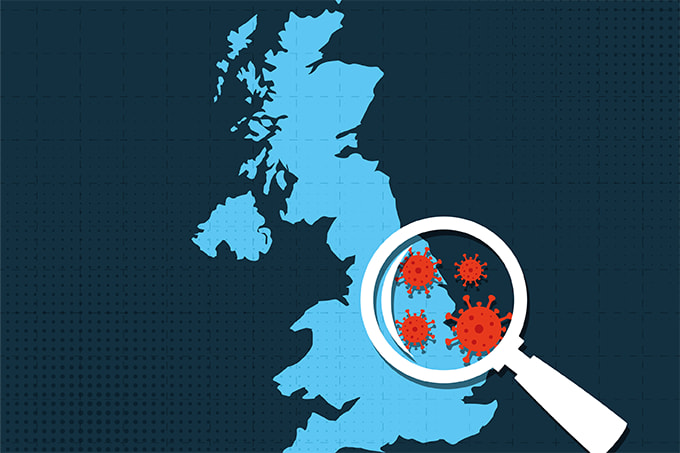People love dogs. People hate COVID-19. Two almost universal truths. It feels inevitable, then, that researchers would attempt to involve our four-legged friends into the fight against the now-endemic disease.
A recent review that examined 29 peer-reviewed papers on the power of pooches’ noses has found that dogs’ detection skills can sometimes rival that of standard RT-PCR testing (1).
“The collective results described in our review paper are quite impressive,” says Tommy Dickey, first author on the paper. “The accuracy of the trained scent dog method is comparable to, or in some cases superior to, the real-time reverse transcription polymerase chain reaction test and the antigen test.”
Dickey, who was previously Distinguished Professor Emeritus and Secretary of the Navy and Chief of Naval Operations Chair in Ocean Sciences at the University of California Santa Barbara, began to focus on therapy dog work after being treated for cancer seven years ago.
The recent paper aimed to evaluate how effective dog scent is when used for COVID-19 screening – and sought to follow up the team’s earlier review, published in 2021 (2). How did the dogs do? Arguably, better than some standard methods.
One of the studies reviewed in the paper found that the dogs they tested displayed a sensitivity 1000 times greater than scientific instruments. This, Dickey says, is the equivalent of detecting a single drop of odorous substance in a body of water bigger than 10 olympic size swimming pools.
“They can detect variants of COVID-19, along with asymptotic, pre-symptomatic, and long COVID-19, as well as symptomatic COVID-19 – even in the presence of other viral respiratory viruses. Furthermore, trained scent dogs have been effectively used to directly sniff individuals to provide quick (seconds to minutes), non-intrusive, and accurate results in public settings including schools, airports, metros, and concerts.”
The review presents dogs as a simple, cost-effective, and environmentally conscious alternative to RT-PCR testing. Surprisingly, one of the peer-reviewed papers examined in the review even claims that scent dog screening could be the new “gold standard” replacement to RT-PCR. “They used Bayesian statistical analyses in their scent dog study which sampled 3134 nasal swabs and found that the sensitivity of their scent dog-based test was superior to the RT-PCR test. In addition, the specificity of the two testing methods were nearly identical. They concluded that the scent dog method, with its high sensitivity, short turn-around-time, low cost, less invasiveness, and ease of application ‘lends itself as a better alternative to the RT-PCR in screening for COVID-19 in asymptomatic individuals,’” Dickey explains.
There are some caveats. More studies with an increased number of dogs is required to gain a greater understanding of their diagnostic abilities. “More work in developing target disease samples and research is needed in different public settings,” says Dickey.
“Perhaps the greatest challenge to the use of medical scent dogs is the implementation of wide-spread, large-scale programs, which will require governmental funding and development of infrastructure that is responsible for certification, protocol standards, and deployments,” he adds.
Dickey hopes that the buzz drawn by the review demonstrates a hunger for dog-assisted diagnostics. “Acceptance of scent dogs for routine disease diagnostics depends on recognition of their value and dependability as perceived by the medical and public communities as well as governmental agencies. It is our feeling that the work described in our recent COVID-19 scent dog review represents a major needed demonstration of how effective and practical trained scent dogs can be in clinical and even public settings,” he says.
Image Credit: Leonardo Merlo / Pexels.com
References
- T Dickey, H Junqueira, “COVID-19 scent dog research highlights and synthesis during the pandemic of December 2019-April 2023,” J Osteopath Med, [Online ahead of print] (2023). PMID: 37452676.
- T Dickey et al., “Toward the use of medical scent dogs for COVID-19 screening,” J Osteopath Med, 1, 141 (2021). PMID: 33567089.




